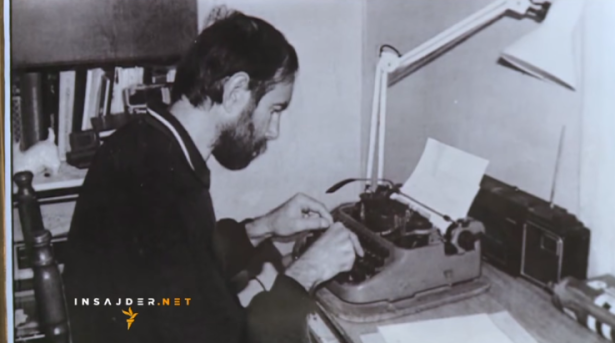
The International Press Institute (IPI), a global network of editors, media executives and leading journalists for press freedom, today joined calls for the Special Prosecutor’s Office in Serbia to take over the investigation into the murder of journalist Milan Pantić.
Pantić, a correspondent at the daily newspaper Vecernje Novosti, was killed with a blunt object by unknown individuals outside his home in the city of Jagodina in central Serbia on June 11, 2001, sparking outrage across the country.
Despite repeated commitments from successive governments and several different police working groups investigating the killing, 19 years later no one has been charged or prosecuted, adding to a continuing climate of impunity for attacks on journalists in Serbia.
To mark the anniversary of his death, IPI Deputy Director Scott Griffen supported the latest call by the Commission for the Investigation of the Murders of Journalists for the highest public prosecutor’s office in Serbia to take over the case and open a renewed investigation.
“Almost two decades have now passed since Milan Pantić was brutally murdered in apparent connection to his work”, Griffen said. “A decision to assign the case to the Special Prosecutor’s Office would add much needed impetus into the investigation and send a clear signal that the Serbian authorities are serious about bringing those responsible for the murder of journalists to justice.”
Fresh investigation needed
Pantić is one of three journalists suspected to have been murdered in Serbia during the tumultuous decade spanning the 1990s and early 2000s: Dada Vujasinović in 1994 and Slavko Ćuruvija in 1999.
In 2018, the Commission, an official government body made up of journalists, associations, and representatives from the police and State Security Agency, called upon authorities to assign the Special Prosecutor to take over the case. It says it never received an official response.
In a statement on June 7, Veran Matić, chairman of the Commission and a veteran Serbian journalist, again pushed for greater efforts to bring those responsible to justice and called for the Special Prosecutor’s Office to publicly respond to their request.
The Commission believes Pantić was killed due to his journalistic investigations into allegedly corrupt privatization deals in Serbia that followed the fall of Slobodan Milosevic’s authoritarian regime and the subsequent transition to democracy at the turn of the century. Prior to his murder the journalist had received several threats over the telephone in response to articles.
According to the Commission, which has followed the case since its establishment in 2013, the long-term investigation by police working groups and judicial authorities in Jagodina was seriously flawed. It says that important material evidence was not preserved, and that important investigative actions were not carried out correctly or at all. This means that while the motive and suspects have been identified, currently there is not enough evidence to bring charges.
“In 2001, Pantic believed that Serbia was a democratic state in which journalists were allowed to cover the circumstances under which important state affairs were carried out, as well as to point out the suspicious activities of important state officials”, Matic said. “That misconception cost him his life. It is our duty to prove to an honest and professional journalist that justice, although slow, is achievable.”
In recent years, exhaustive investigations led to guilty verdicts for those suspected of planning and carrying out the fatal shooting in 1999 of journalist Slavko Ćuruvija, editor and owner of Serbia’s first independent daily newspaper Dnevni Telegraf and the weekly magazine Evropljanin. In 2019, four former Serbian spies were sentenced to prison for between 30 and 20 years for the murder.
In 2000, IPI named Matić one of its 50 World Press Freedom Heroes of the last fifty years.